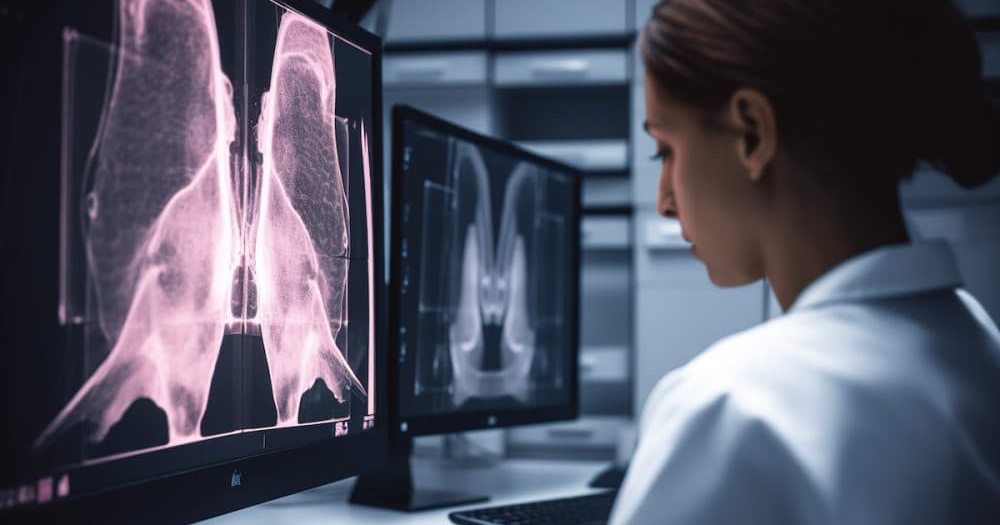UK launches an AI trial to revolutionize early detection of breast cancer

The UK is taking a bold step in the fight against breast cancer, rolling out a major AI trial that could revolutionize early detection. Nearly 700,000 women will participate in what's being called a landmark initiative to see if cutting-edge artificial intelligence can speed up screenings, spot cancer sooner, and ultimately save lives.
"As a cancer survivor, I feel like one of the lucky ones," said Health Secretary Wes Streeting. "With record numbers of people diagnosed, we need urgent action to improve survival rates and patient care."
This trial is part of a larger push to modernize the NHS and tackle growing cancer cases head-on.
How does it work?
Currently, every mammogram requires two specialists to analyze the images. The AI technology could change that, allowing just one radiologist to complete the process with the assistance of advanced machine learning tools. The AI scans images, flagging abnormalities and changes in breast tissue that might indicate cancer. If something looks suspicious, it's flagged for further investigation.
By automating part of the screening process, the AI aims to ease the burden on overworked specialists. If successful, the technology could free up hundreds of radiologists, speed up diagnoses, and improve patient outcomes. In a country where screening programs handle over two million mammograms annually, that's a game-changer.
Why does it matter?
Breast cancer is the most common cancer among women in the UK, with around 55,000 diagnoses every year. Routine screening plays a crucial role in catching the disease early, and early detection is the key to better survival rates. Right now, the NHS invites women between 50 and 71 for screenings every three years, a program that prevents an estimated 1,300 deaths annually.
But demand is soaring, and the system is under strain. AI could help bridge the gap by streamlining screenings and reducing delays.
"This landmark trial could lead to a significant step forward in the early detection of breast cancer," said Professor Lucy Chappell, Chief Scientific Adviser at the Department of Health and Social Care. "Faster, more accurate diagnoses when it matters most — that's the promise of AI."
If the trial proves successful, it won't just be a win for breast cancer patients — it could set a precedent for how AI is used across the entire NHS.
The context
The trial comes at a crucial moment. Every four minutes, someone in the UK dies from cancer. A recent investigation by Lord Darzi found that survival rates in Britain lag behind those of other similar nations. Experts, patients, and medical professionals are now being asked to weigh in on the future of cancer care as the government develops a National Cancer Plan, set to be announced later this year.
Against this backdrop, AI is emerging as a powerful tool. The UK is investing heavily in digital health, with 30 testing sites nationwide set to integrate AI into routine breast cancer screenings. It's part of a broader effort to make the NHS "fit for the future" — a phrase Streeting used as he pledged to push Britain to the forefront of cancer care.
The trial isn't just about tech — it's about transforming how healthcare is delivered. If AI can lighten the load for radiologists and help diagnose cancer earlier, it could be a turning point in the battle against one of the deadliest diseases in the UK.
💡Did you know?
You can take your DHArab experience to the next level with our Premium Membership.👉 Click here to learn more
🛠️Featured tool
 Easy-Peasy
Easy-Peasy
An all-in-one AI tool offering the ability to build no-code AI Bots, create articles & social media posts, convert text into natural speech in 40+ languages, create and edit images, generate videos, and more.
👉 Click here to learn more


